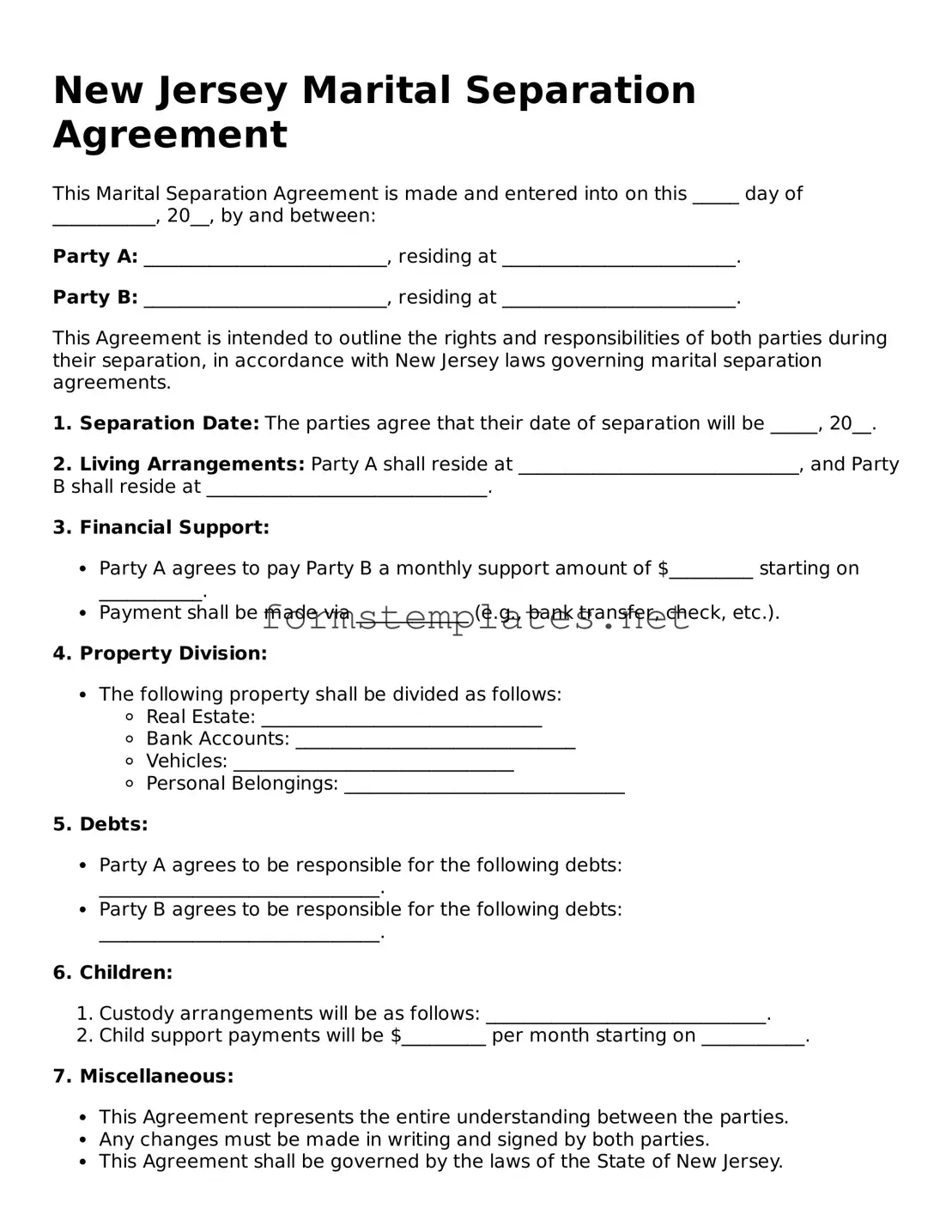Attorney-Approved New Jersey Marital Separation Agreement Template
A New Jersey Marital Separation Agreement is a legal document that outlines the terms of a couple's separation. This agreement addresses various aspects such as property division, child custody, and support obligations. Understanding this form is essential for individuals navigating the separation process in New Jersey.
Open Editor Now

Attorney-Approved New Jersey Marital Separation Agreement Template
Open Editor Now

Open Editor Now
or
⇓ PDF Form
Your form still needs attention
Finalize Marital Separation Agreement online — simple edits, saving, and download.